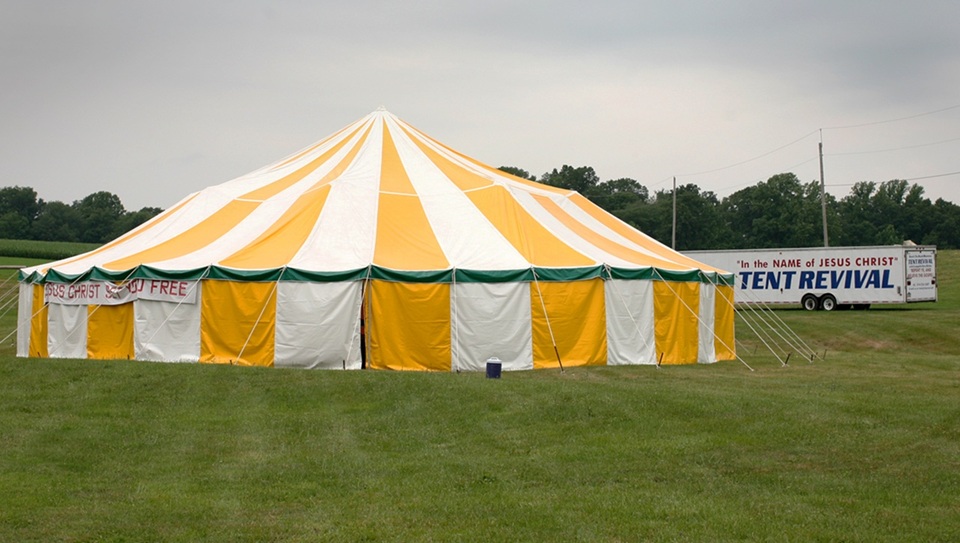.
The Limits of Hospitality
_While I was working in my garden
_A traveler said, “I beg your pardon,
But could you tell me where to find a church?”
_Said I, “Just look around you, man;
_Experience the Masterplan.
No earnest pilgrim ever needs to search.”
_He said that he was looking for
_A whitewashed structure with a door
On which is posted: PLEASE DO ENTER IN.
_I told him to roll up his sleeves,
_To grab a spade or rake some leaves,
For that’s where true salvation will begin.
_It seemed I’d taken him aback,
_And so I showed him to my shack,
Where we sat down to corn and lima beans.
_He spent the night in my spare bed,
_And when the morning came he said,
“For breakfast I would like to try some greens.”
_And so it went for several days,
_Through morning mist and evening haze,
Which made me think he ought to pay some rent.
_At suppertime I told him that
_He needs to pull his weight, or scat.
He smiled and said, “No need, I have a tent.”
.
.
The Last Yugoslav
_Nikola was belligerent
And always wore a dagger and a frown,
_With not enough refrigerant
In all the world to cool his temper down.
_He rendered judgment on his captives:
If they were healthy, he cut off their heads.
_He had no time for maladaptives—
If they were sick, he just cut off their meds.
_He wanted women soft and fluffy,
Like feather pillows stuffed to bust a seam,
_And yet they said this Balkan toughie
But rarely slept and didn’t ever dream.
_A couple of his distant cousins
Complained about his brutal iron fist.
_He reasoned that, since he had dozens,
This pair of fools would likely not be missed.
_When people learned he’d fallen ill
And gone to meet his Maker, no one cried.
_They hated him and always will,
And some still celebrate the day he died.
.
.
C.B. Anderson was the longtime gardener for the PBS television series, The Victory Garden. Hundreds of his poems have appeared in scores of print and electronic journals out of North America, Great Britain, Ireland, Austria, Australia and India. His collection, Mortal Soup and the Blue Yonder was published in 2013 by White Violet Press.

















Kip, these are hysterically funny. No boring sentimentality, no tedious edification, no moralistic sermonizing — just impish fun and sharp verbal swordplay!
Two great fictive ideas: a freeloading churchgoer who has a thing for fresh vegetables, and the last of a defunct Yugoslavia’s citizenry (they’re all Croats or Serbs or Bosnians or Monenegrins now, as they were in 1914).
Yeah, Joe, I been on a roll lately. I think there are still at least a few persons who identify as Yugoslav: naturalized Americans who emigrated to the U.S. before the dissolution of the Soviet Union. A few years ago I worked beside an extended family of Bosnians, good masons and good general workers all. The second generation was as American as I am, and none of us had any trouble getting along with each other. Balkanization might well be a very good thing. Who stands against the preservation of cultural identities? Only those who have never had anything to lose.
And I’m happy to have coaxed a chuckle.
And why, Joe, would anyone want to do the things you said I didn’t do?
Si monumentum requiris, circumspice.
This was the answer given to the question of why Sir Christoper Wren didn’t have a monument. To relate it to your question, I’ll just say “Look around.”
I, too, really enjoyed the humor in these!
Being funny, Cynthia, is a lot of fun. But maybe I was trying to be dead serious.
C.B. As they say, “Stick a fork in it!” These tales are medium rare, just the way I like ‘em! And, of course, well seasoned to perfection!
Well, James, a little bit of salt is always a good idea.
Such Fun! A little whimsy is great for the soul.
A perfect way to start my day…you put a smile on my face.
I agree, Paulette. A smile is as good for you as a glass of fresh-squeezed orange juice.
C.B., the first thing that amazed me was how you ever conceived these poems in the first place, particularly the second one. “The Limits of Hospitality,” which envisions a freeloader playing on the sentiments of a host even with the ending of the freeloader having a tent, is highly creative while making us wonder if that statement earned the freeloader a reprieve. “The Last Yugoslav” was a fascinating take on history with the demise of that nation and return to the pastiche of historical “tribal” identifications. These are not only humorous, but contain elements that make us think.
Sometimes, Roy, I just let my imagination get the best of me. Somehow, I don’t think a reprieve was granted.
What I like most about both of these is that they stimulate thought. “The Limits of Hospitality,” while on its surface is a straightforward narrative has a few profound subtexts that I’m still sorting out. The final line is wonderfully enigmatic and I think could inspire many different readings of the answer.
“The Last Yugoslav” spoke to me personally. I live in an area with a large Serbian and Croatian population, many of them recent immigrants. I had a client who lost everything in the Balkan wars of the 90’s and came here as a war refugee, and many more who have family who experienced the wars. I saw Nikola as an otherwise unpleasant man turned by circumstances into a real monster. There is some irony in the title, too. “Yugoslav” is an entirely made-up term. It never was an ethnicity, just a passport designation that disappeared once the strongman Tito died. The type of violence depicted here is rooted in ethnicity, and Nikola is someone to whom “Yugoslav” would have meant nothing.